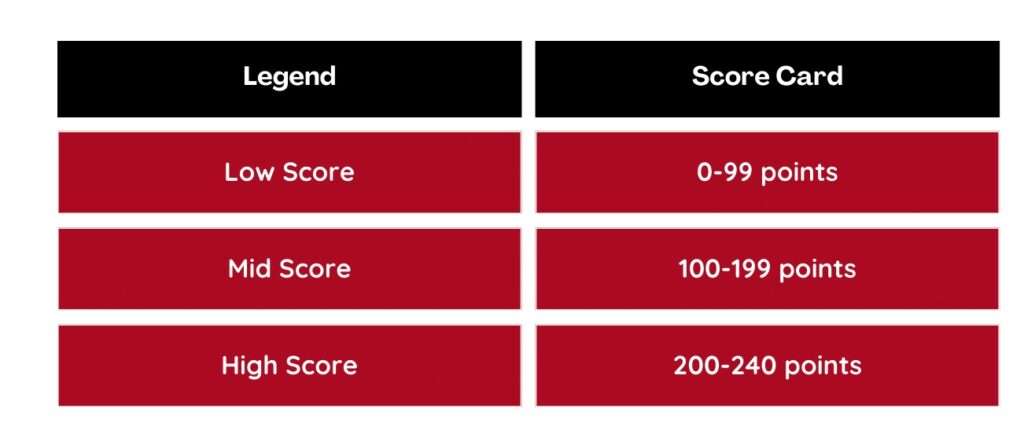Mental Fitness Index
Comprehensive Mental Fitness Report for Acid Attack Survivors in collaboration with Chhanv Foundation
Last updated on: 28-04-2024 | Prepared by: Emotional First Aid Academy
Introduction
Purpose of the Report
This report is developed to provide a comprehensive analysis of the mental fitness of acid attack survivors. It aims to identify areas of strength and potential growth, enabling targeted psychological support and interventions. By understanding the unique mental health needs of these survivors, the Emotional First Aid Academy, in collaboration with Chhanv Foundation, seeks to enhance their overall well-being and integration into our society.
Importance of Mental Well-being
Mental well-being is foundational to personal and societal functioning. It encompasses our emotional, psychological, and social health, influencing how we think, feel, and act. For survivors of acid attacks, maintaining mental well-being is crucial, not only for personal recovery and resilience but also for reintegration into the community. This report underscores mental health as a critical aspect of recovery that requires attention and care, equivalent to physical rehabilitation.
Collaborators
This endeavor is a collaborative effort between:


Chhanv Foundation: Committed to the welfare and empowerment of acid attack survivors through comprehensive support mechanisms.
Emotional First Aid Academy: Focused on providing immediate psychological support and developing mental health education, awareness, training and assessment tools.
Methodology
Participants
- Selection Criteria: Acid attack survivors from diverse backgrounds and age groups.
- Demographic Profile: Age, gender, and other relevant factors were considered for inclusivity and representation.
Assessment Tools
- Mental Fitness Index: A comprehensive assessment tool designed to evaluate various dimensions of mental well-being.
- Six Fundamental Dimensions: Safety & Productivity (Physical Dimension), Environmental Dimension, Work Dimension, Emotional Dimension, Mental Dimension, and Spiritual Dimension.
Data Collection Process
- Structured Interviews: Conducted by certified Emotional First Aid Enablers to ensure consistency and accuracy.
- Confidentiality Assurance: Participants’ privacy and confidentiality were prioritized throughout the assessment process.
- Ethical Considerations: Adhered to ethical guidelines to ensure the well-being and autonomy of participants.
MFI Total Score for Acid Attack Survivors


Survivors Age Group
MFI Overall Score
Score Percentage Distribution
Low Score is 0%
This analysis provides insights into the distribution of scores among the participants, indicating that the majority fall into the mid-score range, with a significant portion also achieving high scores.
By comprehensively evaluating these dimensions, we gain valuable insights into survivors’ mental well-being and can tailor support strategies to address their specific needs effectively.
MFI 6 Dimension Score Overviews Distribution
Average Percentage Distribution of Six Dimensions
Chart conventions
- Safety and Productivity 18.5%
- Environmental Dimension 11.5%
- Work Dimension 19%
- Emotional Dimension 20.2%
- Mental Dimension 17.3%
- Spiritual Dimension 13.5%
This distribution provides insights into survivors’ diverse mental health needs, guiding the development of tailored interventions effectively.
Survivor Profiles
Main findings
The main finding from the analysis of the data on acid attack survivors’ mental fitness is the predominance of participants scoring in the mid to high range, with none falling into the low score category. This suggests a generally positive state of mental well-being among the surveyed survivors.
Additionally, the analysis revealed a diverse distribution of age groups among the participants, with the highest concentration falling in the 25-29 and 20-24 age groups. This demographic insight can inform targeted support and intervention strategies tailored to the specific needs of different age cohorts.
Furthermore, the absence of participants scoring in the low range indicates a potential resilience and adaptive capacity among acid attack survivors, despite the significant trauma they have experienced. This resilience underscores the importance of holistic support systems and interventions that foster emotional healing, empowerment, and social integration.
Overall, the main finding highlights the resilience and mental well-being of acid attack survivors, while also emphasizing the need for continued support and intervention to address the diverse and evolving needs of this vulnerable population.
Next steps
Tailored Support Programs: Develop personalized support initiatives addressing mental health needs across age groups and scoring categories.
Psychoeducational Workshops: Offer workshops to equip survivors with coping strategies and raise community awareness about mental health.
Peer Support Networks: Establish peer groups for survivors to connect, share experiences, and provide mutual support.
Continued Monitoring: Implement ongoing assessments to track progress and adjust support strategies accordingly.
Advocacy and Policy: Advocate for policy changes to improve survivors’ access to mental health services and legal support.
Research Collaboration: Collaborate on research to understand long-term mental health impacts and evaluate intervention effectiveness.
Community Engagement: Engage communities to challenge stigma, promote inclusivity, and empower survivors in decision-making processes.
